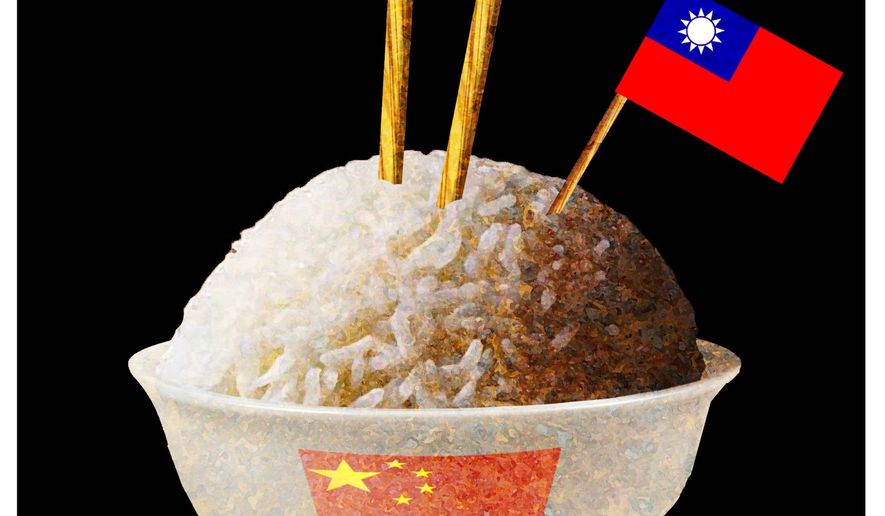OPINION:
On Jan. 9, Secretary of State Mike Pompeo tweeted “I am lifting all self-imposed restrictions on executive branch agencies’ interactions with their counterparts from Taiwan. This action will benefit both of our great democracies.”
On the same day, the U.S. mission to the United Nations said in a statement, during the trip of Kelly Craft, “the Ambassador will reinforce the U.S. government’s strong and ongoing support for Taiwan’s international space in accord with the U.S. one-China policy that is guided by the Taiwan Relations Act, the three U.S.-PRC joint communiques, and the Six Assurances to Taiwan,”
Ambassador Kelly Craft’s visit to Taiwan during Jan. 13~15 makes her the third senior American official to visit Taiwan since August. The visit is highly symbolic not only because Taiwan is not a U.N. member, but also because President Trump will step down in one week. China warned that Washington will “pay the price” for the move. Beijing has been angered by stepped-up support for Taiwan from the outgoing Trump administration. Chinese mission to the U.N. called the U.S. envoy’s visit to Taiwan as “playing with fire” and said the U.S. will remain unsuccessful in harming the “core” interests of Beijing.
For three reasons, Mr. Trump’s buzzerbeater endangers not only Taiwan’s relations with China in general, but Taipei’s relations with Latin America in particular.
First, Mr. Trump has transformed the United States into a “tarnished model.” In his book, “The World: A Brief Introduction” released in May 2020, Richard Haass “gives credit to the United States for underwriting the postwar liberal order, but he also sees American leadership on the wane, nationalism reasserting itself, and an increasingly ambitious China seeking to tilt the world away from liberal democracy.”
In fact, by the end of second decade of the 21st century, the self-proclaimed “greatest democracy in the world” has been an erratic one since the late 1990s. In just more than two decades, the U.S. has seen two presidents impeached, an election ultimately decided by the U.S. Supreme Court, an internationally controversial war in Iraq, and a financial crisis that sent shock waves around the world.
Second, during the U.S.-China power transition in the last decade, Beijing’s quest to recover what it calls “the province of Taiwan” is a top priority on its foreign policy agenda. It is particularly true after Xi Jinping explained, in 2012, his vision of the Chinese Dream of the Great Rejuvenation of the Chinese Nation.
Not surprisingly, Chinese mission to the U.N. warned, “The Taiwan question concerns China’s sovereignty and territorial integrity, and involves China’s core interests … The United States will not succeed in its attempt to harm China’s core interests through political manipulation on the Taiwan question.” China’s Foreign Ministry spokesperson Hua Chunying reemphasized that “China firmly opposes any forms of official exchange between the United States and the Taiwan region. This position is consistent and clear.”
Third, Taiwan was put on the menu. Since taking office in 2016, President Tsai Ing-wen has spoken of creating an “Alliance of Democratic Values”, piggybacking off Mr. Trump’s anti-China rhetoric and attempting to orient her allies away from Beijing. In the process, however, Ms. Tsai has “rewarded” rights violators like Nicaragua and Haiti. It is why Taiwan remains silent on the U.S. Capitol riot.
Tsai Ing-wen enjoyed her first official visit to Panama attending the opening ceremony of the expanded Panama Canal in less than 40 days after her inauguration on May 20, 2016. However, during the four years of her first presidency, seven countries had broken off relations with Taipei in favor of Beijing. To prevent Taiwan from suffocating diplomatically, in September 2018, the U.S. recalled its top diplomats in the Dominican Republic, El Salvador and Panama over their decisions to no longer recognize Taiwan.
“If you are not at the table, you are on the menu,” U.S. Sen. Michael Enzi, Wyoming Republican, once said. When the great powers sit at the geopolitical table, Latin America doesn’t have a seat, but at least it is off the menu. Sadly enough, Taiwan is always on the menu. Shannon Tiezzi correctly pointed out, “it is unlikely China will take concrete actions against the United States, particularly as the Trump administration will be leaving office in less than two weeks.
Instead, Beijing’s usual response is to step up pressure on Taiwan.” Tsai Ing-wen must find a way to prove that, when the China and Mr. Biden’s administration eventually hash out their differences, Taiwan will not be on the menu.
• Antonio C. Hsiang is professor and director of the Center for Latin American Economy and Trade Studies at Chihlee University of Technology.




Please read our comment policy before commenting.